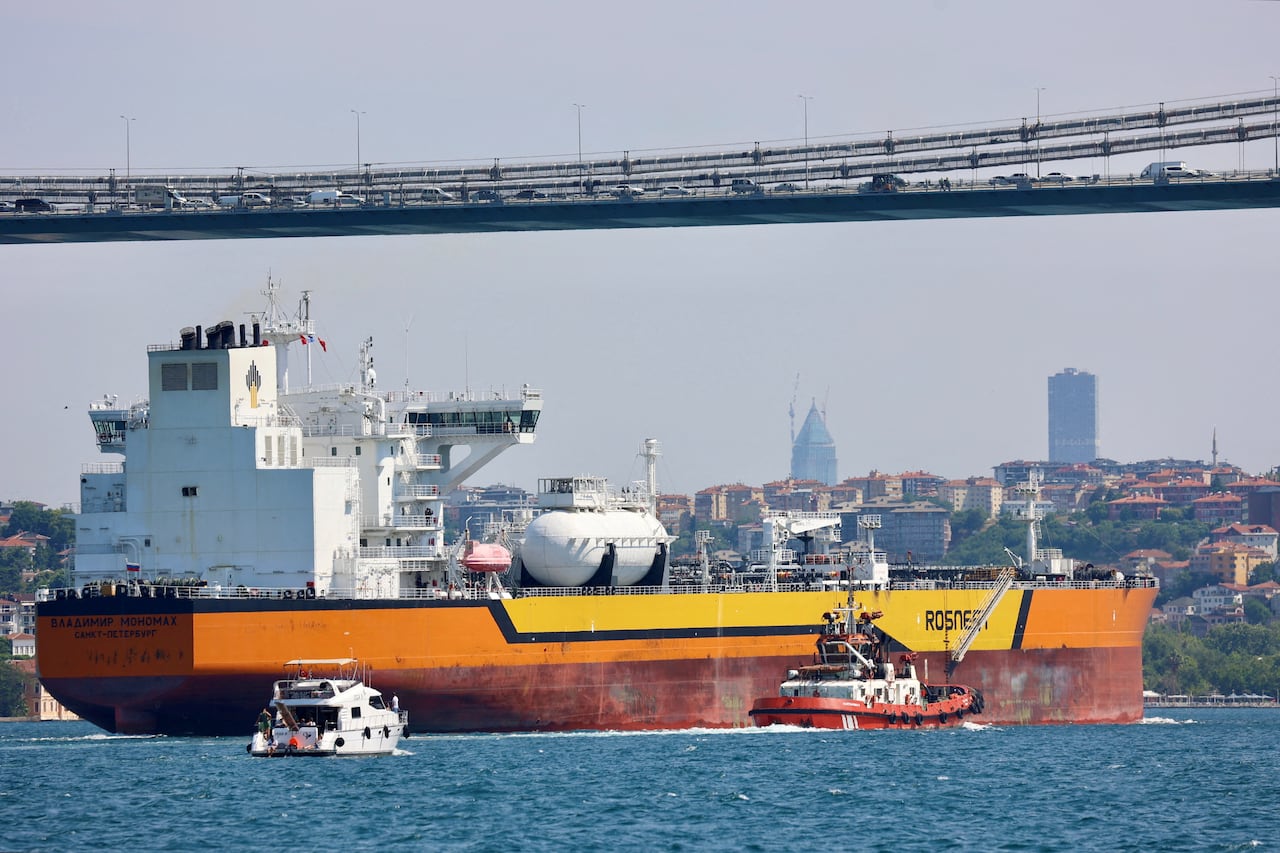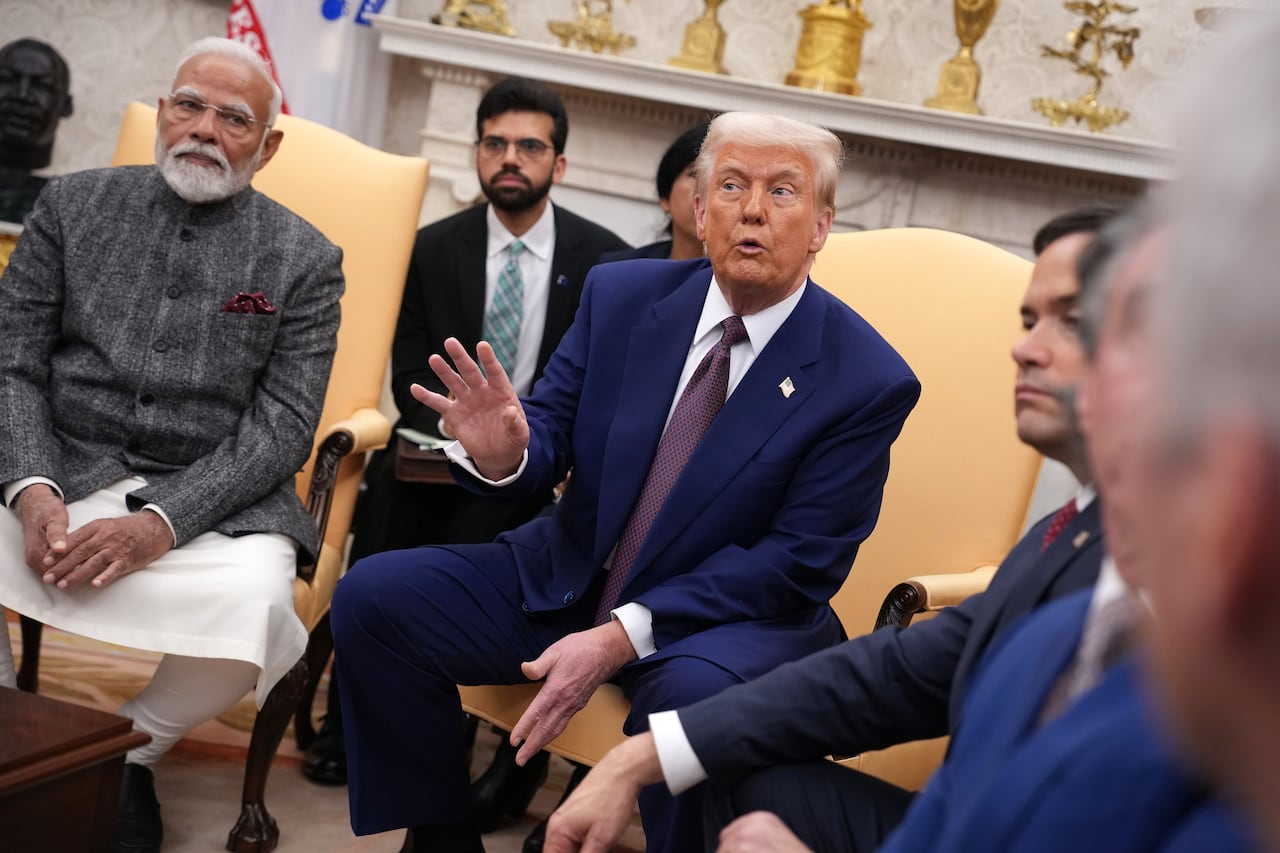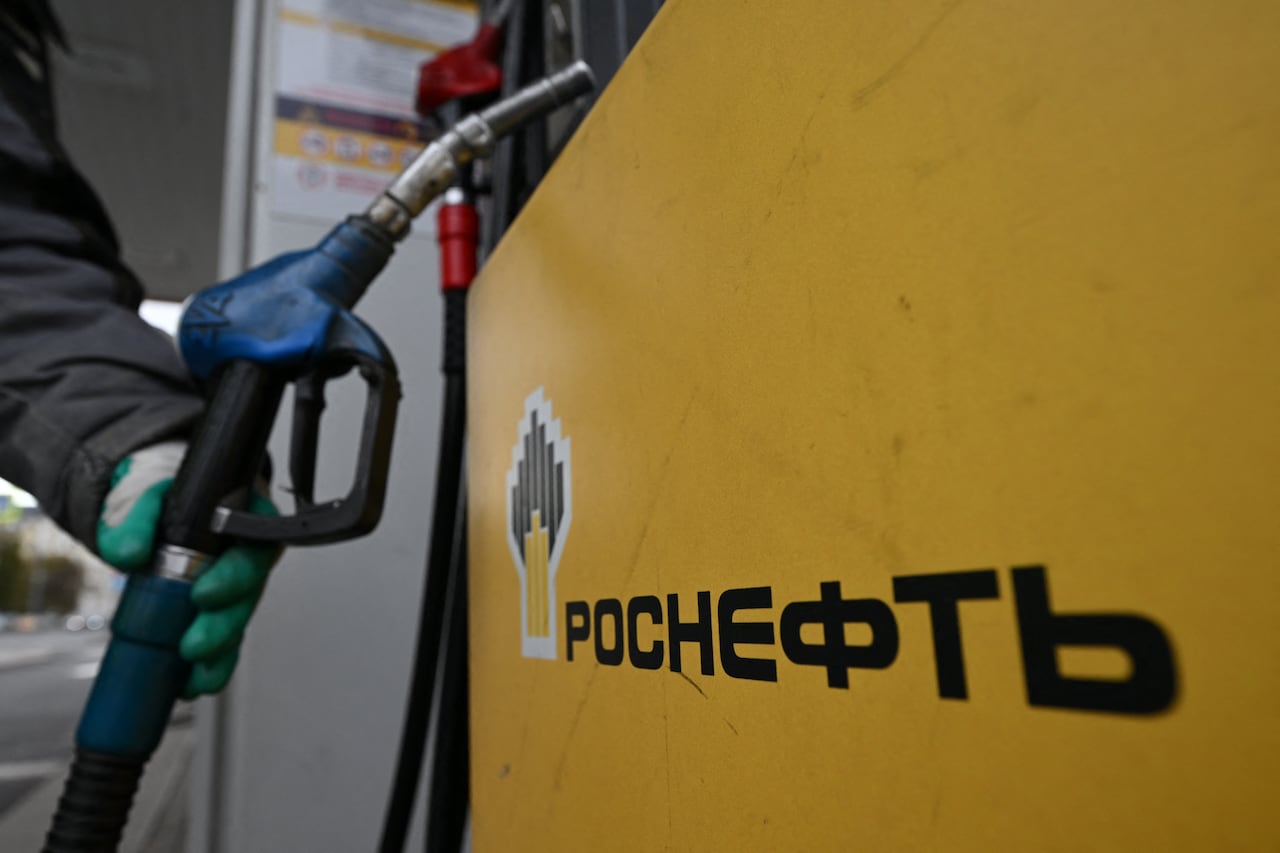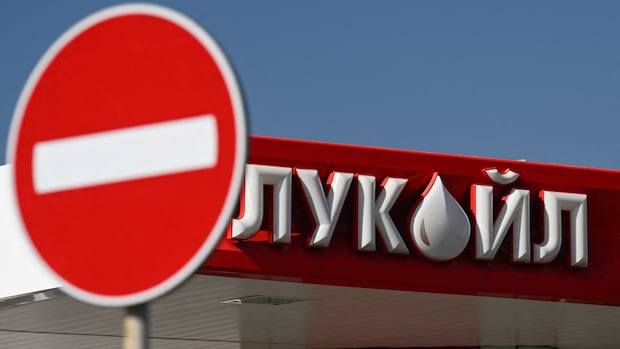When the U.S. Treasury slapped sanctions on two of Russia’s largest oil producers on Wednesday, it was a clear sign of Washington’s growing frustration with Russian President Vladimir Putin, who has refused to agree to a 30-day ceasefire in the war with Ukraine or engage in substantive negotiations.
The U.S. Treasury accused Lukoil and Rosneft of helping to “fund the Kremlin’s war machine.” The sanctions triggered a jump in global oil prices and rattled nerves among Russia’s customers.
How significant are the sanctions?
In a media release, the U. S. Treasury levied sanctions against Lukoil and Rosneft, along with more than 30 of their subsidiaries.
Together, the two corporations export more than three million barrels a day, according to the U.K. government, which also sanctioned both companies earlier this month.
Rosneft is a state-controlled corporation headed by longtime Putin ally Igor Sechin. The company is responsible for nearly half of all Russian oil production.
Lukoil is a privately held corporation and its operations account for two per cent of the world’s oil production. In March 2022, its board of directors called for a ceasefire in Ukraine, saying there needed to be “negotiation and diplomacy.”
However, the threat of sanctions extends far beyond these two companies. The U.S. Treasury says it may go after financial institutions and others that do business with these entities. Washington will give companies until Nov. 21 to wind down transactions with the two oil producers.

What does this mean for Russia’s ability to sell its oil?
After Russia launched its full-scale invasion of Ukraine in 2022 and Western countries rolled out sanctions targeting its energy industry, Moscow shifted more of its energy exports toward China and India.
Both of those countries, along with Turkey, are Russia’s biggest oil customers and they all have been buying the crude at a discount. As a result of these sanctions, some major players are reportedly poised to cut their imports because they fear facing secondary sanctions and being cut off from U.S. financial markets.
India’s Reliance Industries is the country’s top buyer of Russian crude, and Reuters reports that the conglomerate plans to reduce or stop its imports of Russian oil.
Chinese state oil companies have also reportedly suspended purchases of Russian seaborne oil.
“The threat of secondary sanctions will have different effects on China and India,” said Maria Shagina, a senior fellow with the International Institute for Strategic Studies who researches economic sanctions.
“New Delhi is much more susceptible to the threats and is expected to wind down the operations. India’s Reliance [Industries] relies a lot on Rosneft, so disruptions for the refinery are likely to be significant.”
In an email to CBC News, Shagina said it will be harder to “scare away Chinese teapot refineries” because they are smaller, independent operators that are less integrated into the global energy markets.
On Tuesday, U.S. President Donald Trump said that Indian Prime Minister Narendra Modi had assured him that the country wasn’t going to buy as much oil from Russia in the future.
India is embroiled in trade talks with the U.S., which has imposed 50 per cent tariffs on its goods.

What is Russia saying?
In Russia, news of the sanctions was met with fury and dismissiveness.
The deputy chairman of Russia’s Security Council, Dmitry Medvedev, railed in a social media post on Telegram that he believed Trump is now “firmly on the warpath against Russia.”
The country’s Foreign Ministry said the measures were “counterproductive” and would have a negative impact on the world economy.
Igor Yushkov, a senior analyst at the Russian National Energy Security Fund, predicted that the sanctions would affect the finances of Roseneft and Lukoil, but doubted they would have a “radical impact” on the country’s budget.
He said he doubted the U.S. would be able to effectively pressure China and that he believed supply chains would eventually find ways to adapt to the sanctions.
During the inevitable transition, he said, oil production would be reduced and there would be higher prices.
“So what is the point? If Trump is the one pushing for this, he would be the first to feel the consequences,” Yushkov said in an interview with CBC News.
“Gasoline prices in the U.S. would rise and [Trump’s] approval ratings could drop.”

What is the international reaction?
Kuwait’s Oil Minister Tariq Al-roumi said he expects oil prices to rise in the wake of the sanctions, but added that OPEC, the Organization of Petroleum Exporting Countries, can offset any shortage by increasing its output.
Officials with the European Union welcomed the U.S. move, as the bloc approved its 19th package of sanctions. The measures include a ban on imports of Russian liquified natural gas, along with sanctions on more than 100 ships that are part of Moscow’s shadow fleet.
Ukraine’s President Volodymyr Zelenskyy, who has long been pushing for tougher sanctions on Russia, said the U.S. move is a “clear signal that prolonging the war and spreading terror comes at a cost.”





